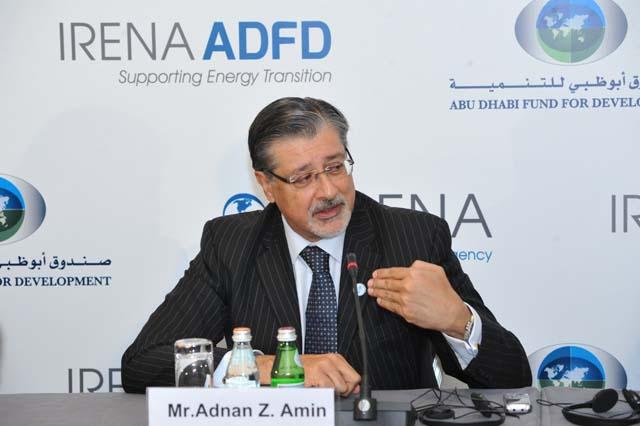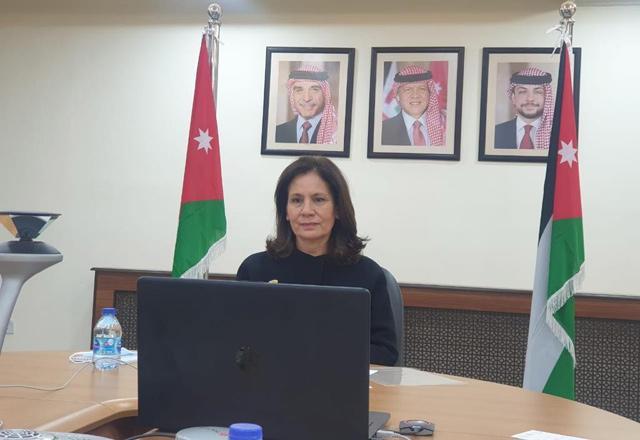ABU DHABI –– Renewable energy is the most viable approach for the future of Jordan and regional countries, according to International Renewable Energy Agency (IRENA) Director General Adnan Amin.
“Jordan is a very interesting market because it has a very developed institutional structure in terms of government agencies dealing with energy issues,” Amin said in a recent interview with The Jordan Times on the sidelines of the Abu Dhabi Sustainability Week.
“Jordan is looking very positively at the future of renewable energy,” he added.
The potential for the Kingdom to start investing in major power generation projects and renewable energy is there, Amin said, noting that its renewable energy market can be bigger with regional integration.
He said IRENA will be engaging with Jordan in the near future to help it achieve its ambitions in renewables.
Under the Kingdom’s 2007-2020 energy strategy, the government had established a renewable energy target equivalent to 7 per cent of the energy mix by 2015 and 10 per cent by 2020.
The plan calls for up to 1,000-megawatt (MW) of wind, 600MW of solar and 50MW of waste-to-energy to be brought online by 2020.
“Renewable energy is the cheapest option to provide electricity access to people,” Amin said, adding that for an oil importing country like Jordan, which is vulnerable to the price of oil, renewable energy resources that are indigenous and inexhaustible can power the country’s future.
Jordan has one of the highest annual daily averages of solar irradiance in the world, with 330 days of sunshine per year, official estimates indicate.
In addition, the Kingdom has significant amounts of untapped wind energy, with wind speeds as high as 7.5 metres per second and up to 11.5 metres per second in hilly areas, according to energy experts.
Region’s future
Asked if IRENA has any estimates for the value of projects and jobs from green energy to be created in the Middle East, Amin said a study the agency conducted on Gulf Cooperation Council (GCC) countries shows that if GCC members meet their targets by 2020, around 116,000 jobs will be created every year.
“The GCC countries have already started targets, and they are not huge targets, ranging between 7 per cent and 10 per cent,” he noted.
“We see similar trends in the MENA region in which Jordan is located,” Amin added.
Green energy will be the main driver of the economy in the future as it would create new industrial structure, new areas of growth and new jobs, the IRENA chief said.
“If Jordan starts an investment programme in renewable energy with a local value chain, and manufacturing industries are associated with the investment, you can be generating new areas of growth,” Amin added.
Nuclear versus renewable
Asked about the comparison between nuclear and renewable energy, Amin said every country has to decide its own energy policy, but IRENA’s job is to tell each nation about the opportunities of renewable energy as it can be a growth industry that creates economic value and jobs.
The cost issues of renewable energy are developing in such a way that are much cheaper than nuclear energy and safer, he said, indicating that there are many expenses associated with nuclear energy that are not applicable when utilising renewable resources, such as risks, insurance and development costs.
“Our belief is that renewable energy is the most viable approach for the future and much more environmentally safe,” Amin stressed.


















